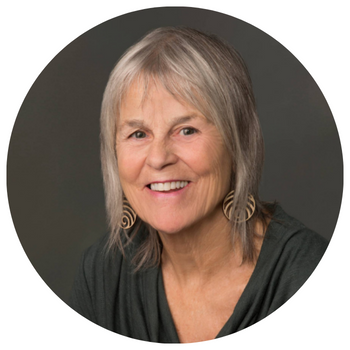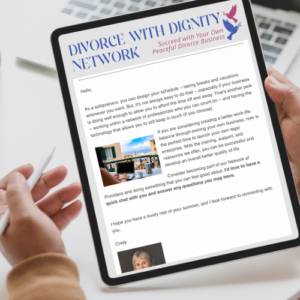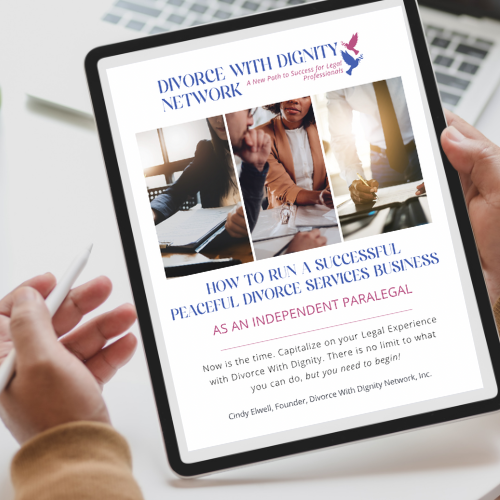As the founder of the Divorce With Dignity Network, I always keep an eye out for developments in the divorce legal services field and for information about divorce in America. I recently ran across some surprising news – while divorce is declining in general (from a spike in the 1980s), the divorce rate for people over the age of 50 has more than doubled in the past two decades. In 1990, about 10% of all divorces were by people over 50. In 2009, divorce statistics show that number had risen to about 25% of all divorces. An interesting side note is that according to a 2004 AARP national survey, the majority of these divorces are initiated by women.
The boomer generation has another interesting statistic – more than half of the people over 50 who are getting divorced have done so before at least once. The risk of divorce for those between the ages of 50 and 64 who have been previously married is double the risk of those who have not been married before. That risk quadruples for those who are 65 years and older.
So what’s going on with the 50+ demographic? What’s behind this rise in their divorce rate?
Surprisingly, it’s not usually about extramarital affairs. It seems to have more to do with changes brought on by the stage of life and changes in society.
The Empty Nest
A lot of marriages are held together because of the kids. Once the children leave home, some couples come to the stark realization that they no longer have much else in common. Their values and interests have changed and gone different ways, and they may find they have been living increasingly different lives. They look at each other and say to themselves, “I still may have many more years to live – do I really want to spend them with this person?”
While consumed with the “busy-ness” of raising a family, many couples don’t have time to notice that their inner paths are diverging and creating fundamental differences buried just below the surface. Once the children are out of the home, the spotlight shines right down on the relationship, pinpointing issues that had gone unnoticed before.
For others, the decline of their marriage may have been quite visible to them, but “for the sake of the kids” they kept it together. When the children are grown, the relationship just fizzles out. Even if they still have affection for each other, sometimes that’s just not enough. They want to share their lives with someone whose beliefs, interests, passions, and values are more in sync with their own, and now that their parental duties have changed, they feel freer to pursue that course of action.
Retirement Realities
Most people look forward to when they can retire and enjoy “the good life”, but many couples are unprepared for the realities of spending more time around each other. Similar to the parenting scenario above, while one or both spouses are still working outside the home at lot of their attention is on the job or career. So much so, that underlying growing differences may be hidden from view. Upon retirement, the focus shifts to life at home with each other, making problems more obvious.
Retirement can also bring to the forefront very different expectations about what life after retirement should be like. For example, the husband might assume his wife will be focused primarily on him and become more involved in activities he enjoys. She, on the other hand, might not like these new demands on her personal time. After retirement, many women might expect their husbands to pitch in more around the house, and perhaps get more done on the “honey-do” list. This may not be on the retired husband’s agenda, or he may envision a more “supervisory” role and start directing how things should be done on the domestic front. It’s very clear that if a couple’s expectations are not in alignment, it can result in feelings of disappointment and resentment, which can in turn lead to estrangement.
Longevity
People are living longer these days. In days of yore, many people simply didn’t live long enough to get much past the onset of the empty nest stage or retirement. Whereas an older couple in an unhappy marriage a half century ago may have decided to stay together because they didn’t see themselves living much longer anyway, people ages 50 to 65 nowadays can usually expect many more active years ahead of them. And they want those years to be happy and fulfilling, not stuck in an unhappy marriage.
Differences in Societal Attitudes Toward Marriage and Divorce
Sociologists Susan Brown and I-Fen Lin, who co-authored a paper called “The Gray Divorce Revolution”, tell us that baby boomers entered into marriage with expectations that were very different from those of previous generations. They note certain phases of American views on marriage over the past century.
Prior to World War II, marriage was seen as an institution, an economic union of sorts. In the two decades following the war, the “institutional” phase transformed into the “compassionate” phase when the success of a marriage was measured by how well each spouse fulfilled the strictly-defined roles of husband and wife. Husbands were expected to be good providers, while wives were judged according to their skills as mothers and homemakers.
But in the 1970s, baby-boomers started looking at marriage as a means of personal fulfillment and happiness, which Brown & Lin termed the “individualized” phase. Women especially began seeing themselves as separate and distinct from their traditional roles. To be content in a marriage, both men and women of this phase want to have their personal needs fulfilled. So when those needs are no longer being met, boomers are deciding to divorce instead of staying in a marriage that no longer works well for them. Not only do people expect so much more of marriage nowadays, we also have more options. Divorce is not the social disgrace it once was, and the increasing economic independence of women allows them to escape a bad marriage that wives in earlier times might have had to endure due to being financially dependent upon their husbands.
Dealing with Divorce After 50
People who divorce after the age of 50 may not have some of the worries younger divorcing couples do such as child custody and support for minor children. But they often have to deal with other worries that accompany their stage in life. Fears about who will care for them if they get seriously ill, anxiety about being lonely after sharing a life and a home with someone else for so many years are common feelings, or concerns as to how to divide the assets and debts in order to live comfortably going forward.
But just like people of any age who are divorcing, those over 50 will also have to work through a variety of emotions such as anger, grief, depression, and anxiety. For people who fall into this category, there are a variety of ways to cope with these and other distressing feelings brought on by divorce, and find ways to move on and reinvent their lives. Some suggestions they may want to consider for learning to cope, heal and rebuild are:
- Join a divorce support group. They’ll learn that they are not alone in what they are going through and the feelings that they are experiencing. Plus they can learn from others, both through their mistakes, and through their triumphs as they move forward and are able to cope with the new realities of life.
- They can set up some sessions with a therapist. Look for a Marriage and Family Therapist (MFT). If they are sure that they want a divorce, then the therapist they choose should have experience working with people who are going through a divorce and not set on trying to save the marriage.
- Delve into areas of personal growth to rediscover their identity as individuals. They can take some time to write in a journal, read some self-discovery books, or take some classes in a subject that “speaks” to them.
- Work with a divorce coach. Divorce coaches are specially trained to help their clients be their best selves while going through the divorce process, and to help each client develop a clear vision of the new life he/she wants to create and map out a plan to get there.
- Pursue leisure activities they enjoy. Get involved with groups who share their interests.
- Connect more often with friends. Close friends can be such great support during difficult times, and can bring some fun into life. They might also want to look up people they haven’t been in touch with for awhile.
How the Divorce Process Works:
It’s a common belief that when people decide to get a divorce, the procedure is to hire a lawyer and then fight it out in divorce court. This certainly is one way to go about it, but rarely is it the best way. There are much better alternatives. So, what types of legal support are available? Because every marriage and therefore every divorce is unique, the various legal options for obtaining a divorce should be evaluated to determine which one is right depending on the situation.
If the parties agree on everything (or almost) with regard to the divorce agreement, they might use a do-it-yourself online divorce service, but this is not recommended. Divorce can be quite complicated, financially and legally, and it’s easy to make mistakes that could negatively affect them later. It would be well worth their time and money in the long run to get some legal help with their divorce decisions and paperwork.
Independent Paralegal or a Legal Documentation Service
They can get all the legal papers prepared and filed with the court. Depending on where the parties live and the type of service they use, this could cost about $2,000 or less. They should to get referrals from friends, or look on YP.com (online yellow pages) to search for “paralegal”, “legal document”, etc. Look for reviews on Yelp, Google, or Yahoo to make sure the service has a good reputation.
Divorce Mediator
This type of legal support is for couples who need help coming to an agreement on some issues. Again, try to get recommendations from friends, or look for one with good reviews. Make sure it’s someone who has extensive experience in family law; even better, try to find one who specializes exclusively in family law issues. If the divorce mediator is also an attorney, verify that he/she only does mediation and does not do any litigation. His/her job is to help the parties resolve outstanding issues, work out a settlement they can both agree on, and then type up the forms and divorce agreement. The costs will probably be more than a legal document preparation service, but less than regular attorney fees.
Divorce Attorney
If the parties are in agreement on all matters, they can hire an attorney to do all the paperwork and nothing more. Be sure to only hire someone who has been recommended, or who has excellent reviews. Ask her/him to clarify up front the exact cost of the service (not an estimate).
They can also go to a Divorce With Dignity office, which will process all the paperwork and help them through their difficult transition without litigation. Divorce With Dignity is expanding nationally and now has offices in California and Florida.
After the Divorce
After they’ve had some time to recover, they might even want to start dating again. For older divorced people, the question that always comes to mind is, “What if the ‘good ones’ have already been taken?” But they can take heart – over the past year, the number of people 50 or older who use online dating sites has grown twice as fast as any other age group! *
*per comScore Inc., an online data-analysis and marketing company
This article was provided by the Divorce With Dignity Network, a national organization of divorce professionals. Our Network provides a proven business model to legal professionals so that they can have their own divorce business and earn a good income, while helping their clients achieve a peaceful divorce in a holistic and supportive way. Our divorce professionals help take the fear out of the divorce process and provide a safe place for their clients to achieve a divorce that is fair, cost effective and as easy as possible depending on the circumstances.
For more information on having your own divorce business as an independent paralegal, mediator or attorney, please contact:
Cindy Elwell
Divorce With Dignity Network, Inc.
www.peacefuldivorcebusiness.com
415-295-1560
The author of this blog is not an attorney and the information contained in this article should not be considered legal advice. The information provided here is based on the experience of the author and some of her clients whose actual names are not mentioned. Do not hesitate to seek the advice of an attorney if you have any legal questions.





